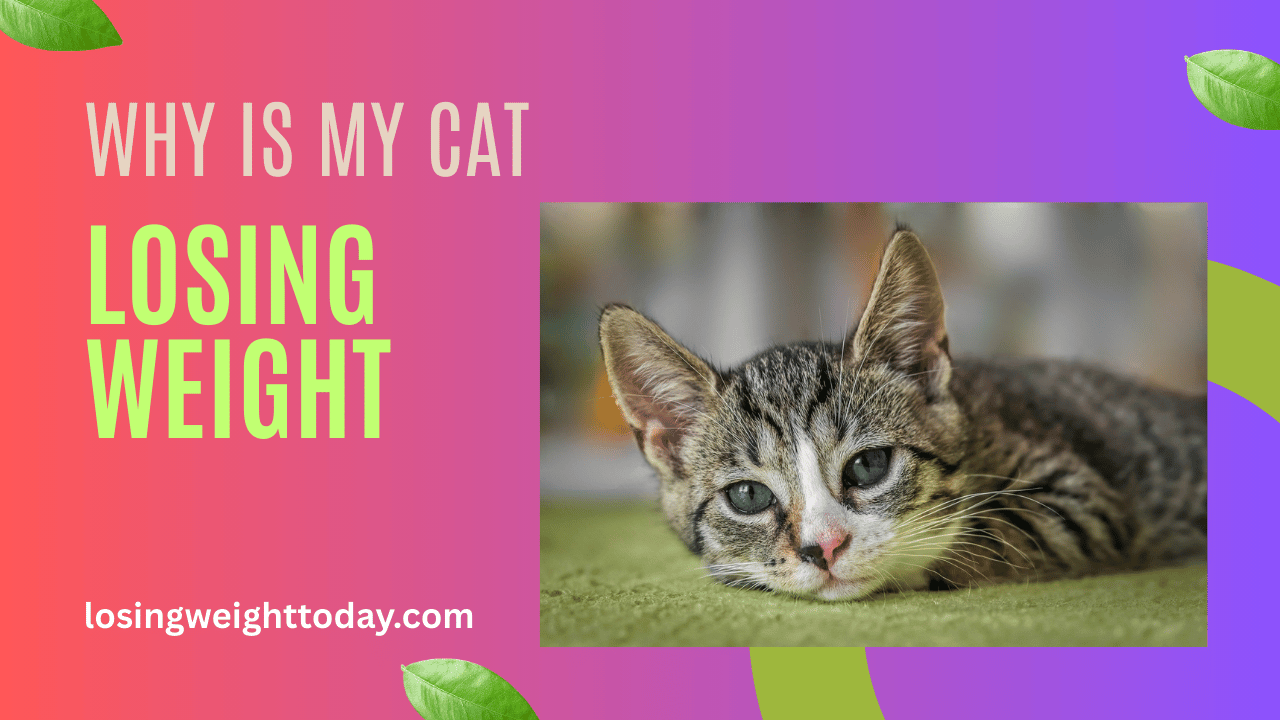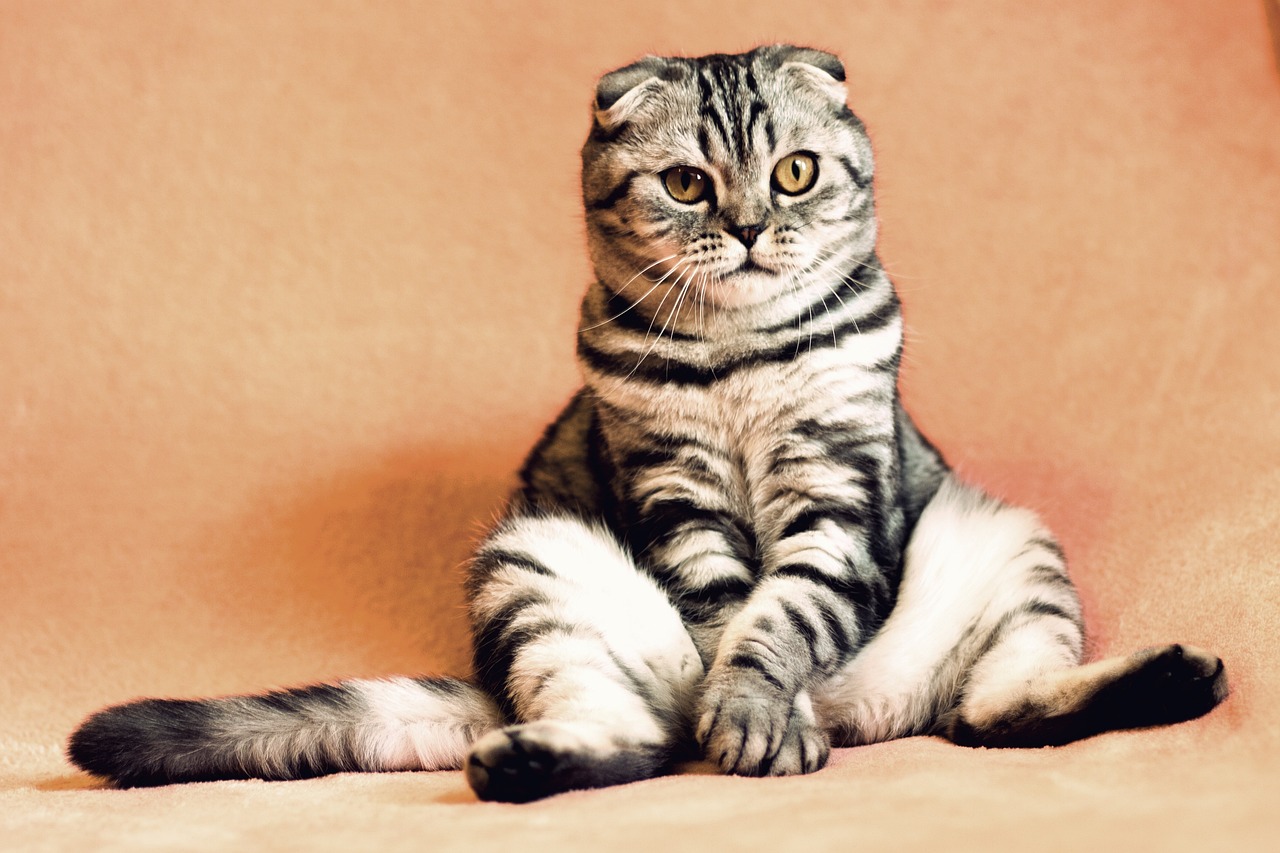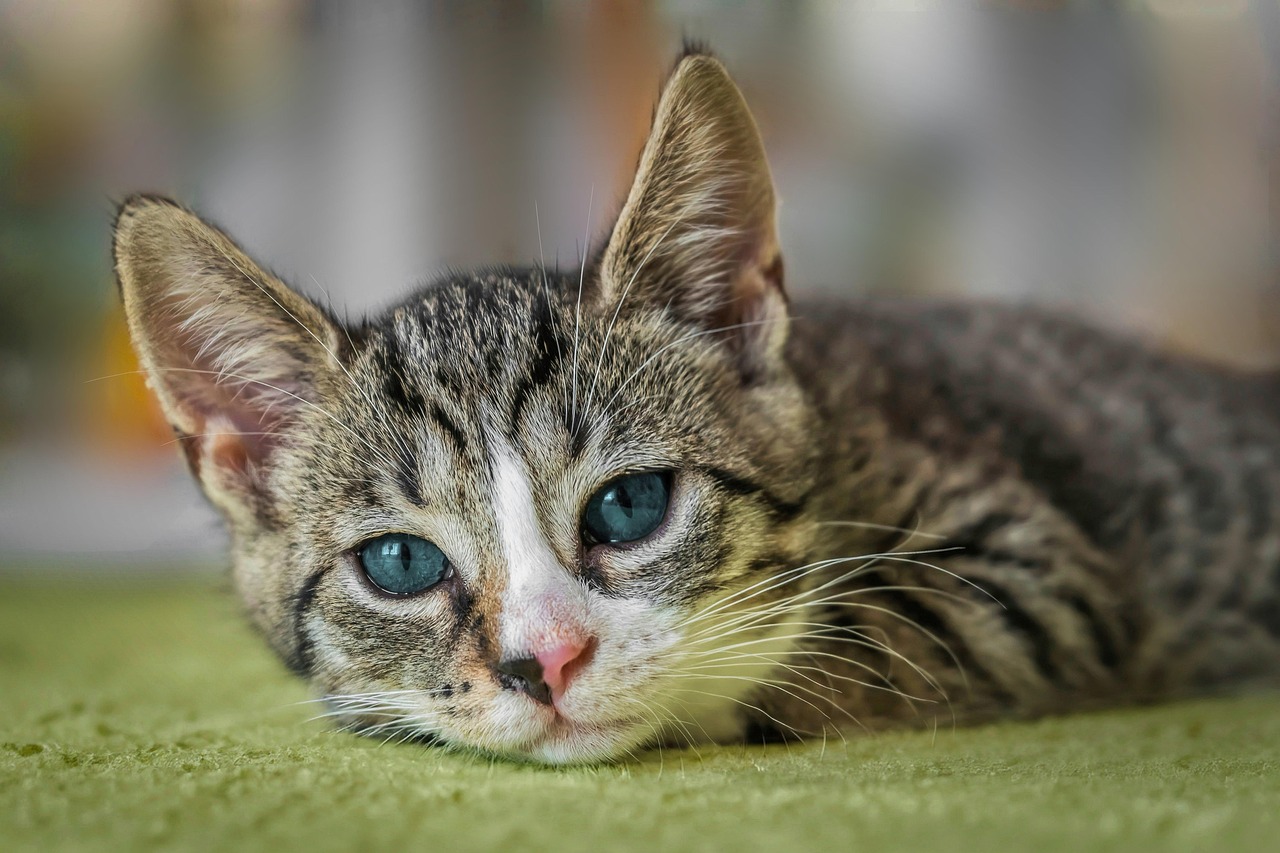Cats are known for their independence, playful nature, and curious behaviors. However, as a responsible pet owner, it can be worrisome when you notice that your feline friend is losing weight. Weight loss in cats can be a sign of various physical or behavioral issues, and it’s crucial to get to the root cause as soon as possible. In this article, we will explore the various reasons why your cat may be losing weight, the importance of addressing this issue promptly, and the steps you can take to ensure your cat’s health and well-being.

Understanding Cat Weight Loss
Before diving into the specific reasons for weight loss, it’s essential to understand what constitutes a healthy weight for your cat. Cats come in various breeds and sizes, and their ideal weight can vary significantly. Generally, a healthy adult cat weighs between 8 and 15 pounds, but this can differ based on the breed, age, and overall health.
Weight loss can be detected when you notice that your cat’s ribs or spine are more prominent than usual, or when their body feels bony to the touch. A sudden or gradual loss of weight can signal underlying health problems that should not be ignored.
Common Causes of Weight Loss in Cats
1. Medical Conditions
One of the foremost reasons for unexplained weight loss in cats is an underlying medical condition. Here are some common health issues that can lead to weight loss:
a. Hyperthyroidism
Hyperthyroidism, an endocrine disorder characterized by an overproduction of thyroid hormone, is common in older cats. Symptoms may include weight loss despite an increased appetite, restlessness, and excessive urination. If left untreated, hyperthyroidism can lead to severe health complications.
b. Diabetes Mellitus
Another serious condition is diabetes, which occurs when the body becomes resistant to insulin or fails to produce enough insulin. Cats with diabetes may lose weight despite having a normal or increased appetite, along with other symptoms such as increased thirst and frequent urination.
c. Chronic Kidney Disease (CKD)
CKD is a progressive condition affecting many older cats and can lead to weight loss due to loss of appetite, increased urination, and lethargy. Additional symptoms include dehydration and urinating more frequently.
d. Dental Disease
Dental issues, including periodontal disease or tooth decay, can cause significant discomfort. If your cat is struggling to eat due to pain, they may lose weight as a result. Weight loss in an otherwise healthy cat may prompt an examination of its dental health.
2. Behavioral Factors
Sometimes, weight loss in cats can be attributed to behavioral factors rather than medical issues:
a. Changes in Environment
Cats are creatures of habit, and any changes in their environment can stress them out. This includes moving to a new home, introducing a new pet, or changes in family dynamics. Stress can result in decreased appetite, leading to weight loss.
b. Dietary Changes
A sudden change in diet can also lead to weight loss, especially if your cat does not approve of the new food. Cats can be picky eaters and may refuse to eat or eat less when their routine is altered.
c. Loss of Appetite (Anorexia)
Anorexia, or lack of appetite, can be caused by various factors, including stress, pain, or even boredom. Cats may also become less interested in food as they age or if there are changes in their routine.
3. Parasites
Parasites such as worms can also contribute to weight loss in cats. Tapeworms and roundworms can cause digestive issues, leading to weight loss despite a healthy appetite. Regular veterinary check-ups and preventative treatments can help control these issues.
4. Cancer
Weight loss can sometimes be a sign of more severe diseases, including cancer. Tumors can affect a cat’s metabolism, causing them to lose weight, or they may result in a decreased appetite due to pain or discomfort. Cancers affecting the digestive system, such as lymphoma, can particularly lead to changes in weight.
Importance of Veterinary Consultation
If you notice that your cat is losing weight, it’s essential to seek veterinary advice promptly. A veterinarian can perform a thorough examination, including blood tests, urinalysis, and sometimes imaging studies, to uncover the underlying cause. Early diagnosis is critical, as many conditions are more manageable when caught in their early stages.
Observing Your Cat
As a pet owner, it’s vital to observe your cat closely. Take note of the following:
- Changes in Appetite: Is your cat eating less, or have you noticed a complete lack of interest in food?
- Behavioral Changes: Is your cat acting more withdrawn or lethargic than usual?
- Water Consumption: Are they drinking more or less water than normal?
- Grooming Habits: Has their grooming routine changed?
Documenting this information can aid your veterinarian in diagnosing the issue more effectively.
Steps to Take
1. Schedule a Veterinary Appointment
A veterinarian should be your first point of contact if you notice significant weight loss. During this visit, ensure that you provide detailed observations about your cat’s behavior and eating habits.
2. Maintain a Health Diary
Documentation can be beneficial. Keep a diary of your cat’s weight, feeding habits, behavioral changes, and any other symptoms you observe. This information can prove invaluable in diagnosing health issues.
3. Nutritional Assessment
With your vet, evaluate your cat’s diet. If a dietary change is necessary, your veterinarian can recommend high-quality cat food that meets your cat’s specific nutritional needs.
4. Create a Comfortable Environment
If stress is a factor, try to make your home environment more comfortable for your cat. Provide a safe hiding place, maintain a consistent routine, and minimize loud noises.
5. Regular Veterinary Check-Ups
Regardless of your cat’s current health, regular vet visits are vital for preventive care. Older cats, especially, should have at least annual check-ups, as many serious conditions can develop without obvious symptoms.
Conclusion
Weight loss in cats is a serious concern that should never be ignored. While various factors can contribute to this condition, understanding the potential causes and acting swiftly can protect your cat’s health and well-being. From medical issues like hyperthyroidism and diabetes to behavioral factors and environmental stressors, several underlying issues could be affecting your furry friend.
By maintaining a close watch on your cat’s specific behaviors, habits, and health, you can be a proactive pet owner. Always consult with a veterinarian for the best recommendations and treatment options. Ultimately, your timely action can ensure that your feline companion continues to thrive and lead a happy, healthy life.


